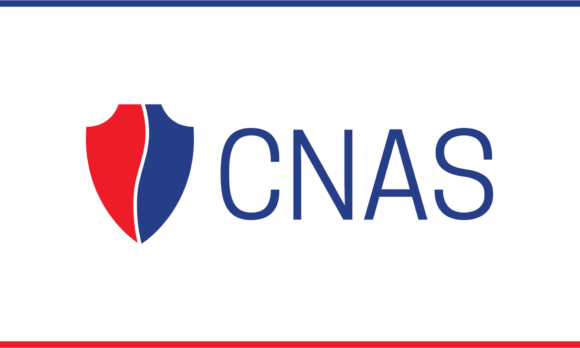March 17, 2021
Sharper: Financial Technology
Analysis from CNAS experts on the most critical challenges for U.S. foreign policy.
Innovations in financial technology, including new digital currencies and payment platforms, will transform the global economy. At the same time, these technologies have created new vulnerabilities for the United States during a period of global competition between open societies and authoritarian regimes over the digital future. CNAS experts are sharpening the conversation about the economic and national security implications of new innovations in financial technology. Continue reading this edition of Sharper to explore their ideas and recommendations.
Features
China's Digital Currency
China has made greater progress toward developing a national digital currency than any other major advanced economy. This development has critical ramifications for the Chinese Communist Party’s (CCP) rising digital authoritarianism, as Beijing seeks to influence the evolution of financial technology in the global banking system. In a new CNAS report, experts Yaya J. Fanusie and Emily Jin argue that Beijing’s efforts to develop a central bank digital currency will play a key role in driving the CCP’s digital authoritarianism.
The Razor's Edge: Liberalizing the Digital Surveillance Ecosystem
The use of new financial technologies has grown at a time when open societies and democracies are competing with authoritarian regimes to shape the digital future. In a recent CNAS report, expert Kara Frederick examines the global digital surveillance ecosystem and offers avenues for a U.S. response. Finding that the COVID-19 pandemic has accelerated global trends in digital surveillance, her report proposes four lines of effort for a U.S. response to the illiberal use of surveillance technology abroad, with implications for U.S. tech companies and consumers.
China’s Digital Currency
China is pushing aggressively to be a global leader in financial technology....
The Razor’s Edge: Liberalizing the Digital Surveillance Ecosystem
Democracies must resist the impulses to build permanent digital surveillance infrastructures or risk losing a broader global contest between open societies and repressive regi...
Financial Attacks on Democracy
New financial technologies have posed risks to America's national security and the integrity of the U.S. political system. The Russian government’s interference in the 2016 election received significant attention from policymakers and the media, but a critical aspect of the operation remains largely unreported: the cryptocurrency that funded it. A recent CNAS report outlines the role of cryptocurrency in the 2016 Russian election interference campaign, proposing specific recommendations for policymakers and the private sector to mitigate the threat of future cryptocurrency-funded election interference campaigns.
Financial Technology and National Security
How are innovations in financial technology reshaping the economic and national security landscape? "The fast-growing financial technology industry is claiming an increasingly important role in the broader financial services domain, from payments to lending, clearing and settling, new virtual assets and currencies, and beyond," CNAS experts wrote in a June 2019 policy brief. "These new financial technologies pose a range of threats and opportunities to U.S. national security."
Financial Attacks on Democracy
The ease with which foreign intelligence agencies can exploit cryptocurrency to fund criminal activity should be a grave source of concern for proponents of democracy and free...
Financial Technology and National Security
The fast-growing financial technology industry is claiming an increasingly important role in the broader financial services domain, from payments to lending, clearing and sett...
Commentaries
Central Bank Digital Currencies: The Threat From Money Launderers and How to Stop Them
"Digital currency appears to be the future of money," argues Yaya Fanusie in Lawfare. "Efforts to merge monetary policy and instruments with computer-science-driven financial technology are gaining momentum globally. Unlike independent cryptocurrencies such as Bitcoin, central bank digital currency (CBDC) has a high chance of national adoption precisely because it would be issued by a nation’s monetary authority, with its value backed by government fiat and its use encouraged by public policy."
The Financial Footprints of North Korea’s Hackers
Efforts by the international community to prevent North Korea from obtaining and expanding its nuclear weapons program have largely failed. As North Korea continues to successfully evade U.S. and U.N. sanctions, what can the United States do? A new explainer video from CNAS explores recommendations for exposing the financial footprints of North Korea’s hackers.
Beyond TikTok: Preparing for Future Digital Threats
Kara Frederick, Chris Estep, and Megan Lamberth write in War on the Rocks that "without a smarter approach, American policy will fail to successfully confront fast-growing, foreign-owned digital platforms with systemic data and information security vulnerabilities. Prior to any future executive orders aimed at Chinese companies, the president—with input from the secretaries of state, commerce, and treasury—should articulate a set of principles-based criterion for this framework. This would help strengthen Washington’s broader efforts to offer an alternative to Beijing’s authoritarian, self-serving vision for the future of the internet."
Central Bank Digital Currencies: The Threat From Money Launderers and How to Stop Them
Digital currency appears to be the future of money....
The Financial Footprints of North Korea’s Hackers
As North Korea continues to successfully evade U.S. and UN sanctions, what can the United States do?...
Beyond TikTok: Preparing for Future Digital Threats
By the end of September, the American social media landscape will undergo a profound transformation, and we cannot yet map this new terrain. President Donald Trump’s executive...
Preventing the Finance of Online Sexual Exploitation
"The ongoing COVID-19 pandemic has contributed to increased online activity and more digital transactions for both licit and illicit purposes," writes Jason Bartlett for CNAS. "Greater online activity in the midst of more tenuous economic situations poses risks to populations that are already vulnerable to trafficking and online exploitation. As more illicit actors operate online, the U.S. government can expect to see digital currencies used as tools for facilitating the financing of human trafficking."
Don’t Sleep on China’s New Blockchain Internet
"U.S. national security policymakers are working aggressively to push back China’s global market advance in 5G and artificial intelligence technology. Meanwhile, the Chinese Communist Party (CCP) is progressing unfettered in a parallel technological campaign: expanding global blockchain infrastructure," Yaya Fanusie warns in Lawfare.
Post-Pandemic Tourism Could Boost China’s New Digital Currency
"China finds itself in a strong position to release its central bank digital currency, the eCNY, following successful trials," writes Francis Shin. "The completion of the eCNY trials coincides with the rollout of the Covid-19 vaccine, and now that countries can ease travel restrictions and the hard-hit tourism industry can recover, China’s outbound tourism could become a catalyst for the global usage of the eCNY."
Preventing the Finance of Online Sexual Exploitation
The ongoing COVID-19 pandemic has contributed to increased online activity and more digital transactions for both licit and illicit purposes. Greater online activity in the mi...
Don’t Sleep on China’s New Blockchain Internet
The CCP is progressing unfettered in a parallel technological campaign: expanding global blockchain infrastructure....
Post-Pandemic Tourism Could Boost China’s New Digital Currency
Tourism could become a defining moment for the internationalization of China’s currency, the renminbi....
In the News
Featuring commentary and analysis by Yaya J. Fanusie, Emily Jin, and Jason Bartlett.
China Charges Ahead With a National Digital Currency
Annabelle Huang recently won a government lottery to try China’s latest economics experiment: a national digital currency. After joining the lottery through the social media a...
Virtual Control: The Agenda Behind China's New Digital Currency
Celebrations to mark the lunar new year of the Ox, which began on February 12, have been somewhat muted because of the coronavirus pandemic. The numbers of people traveling to...
North Korea is the most isolated country on the planet, but it still finds ways to steal billions of dollars
Heavy sanctions, imposed by both the US and the UN, prevent North Korea from participating in the formal global economy. The regime often circumvents these sanctions, mostly t...
About the Sharper Series
The CNAS Sharper series features curated analysis and commentary from CNAS experts on the most critical challenges in U.S. foreign policy. From the future of America's relationship with China to the state of U.S. sanctions policy and more, each collection draws on the reports, interviews, and other commentaries produced by experts across the Center to explore how America can strengthen its competitive edge.
Subscribe
Sign up to receive the latest analysis from the CNAS expert community on the most important issues facing America's national security.
Thank you for registering! You will receive a confirmation email shortly. All CNAS events are free, open to the public, and viewable from cnas.org/live.
Stay up-to-date with report releases, events, major updates, and announcements from the Center for a New American Security.
More from CNAS
-
Lighting the Path
The world’s leading powers are engaged in an unprecedented technology competition. Autocratic regimes are advancing a vision for technology use—a techno-totalitarianism that e...
By Carisa Nietsche, Emily Jin, Hannah Kelley, Emily Kilcrease, Megan Lamberth, Martijn Rasser & Alexandra Seymour
-
Sharper: The Authoritarianism Challenge
Autocratic leadership is on the rise globally. Even in democratic nations, leaders are eroding checks on their power and weakening institutions. The use of illiberal technolog...
By Anna Pederson
-
A techno-diplomacy strategy for telecommunications in the Indo-Pacific
Head of ANU National Security College Professor Rory Medcalf and Director of ANU Tech Policy Design Centre Johanna Weaver join Lisa Curtis and Martijn Rasser from the Center f...
By Lisa Curtis & Martijn Rasser
-
Sharper: Indo-Pacific Partnerships & Allies
Through the Quad and the newly minted, yet controversial, AUKUS agreement, Washington is increasing its focus and resources on the Indo-Pacific region. The White House is also...
By Anna Pederson















